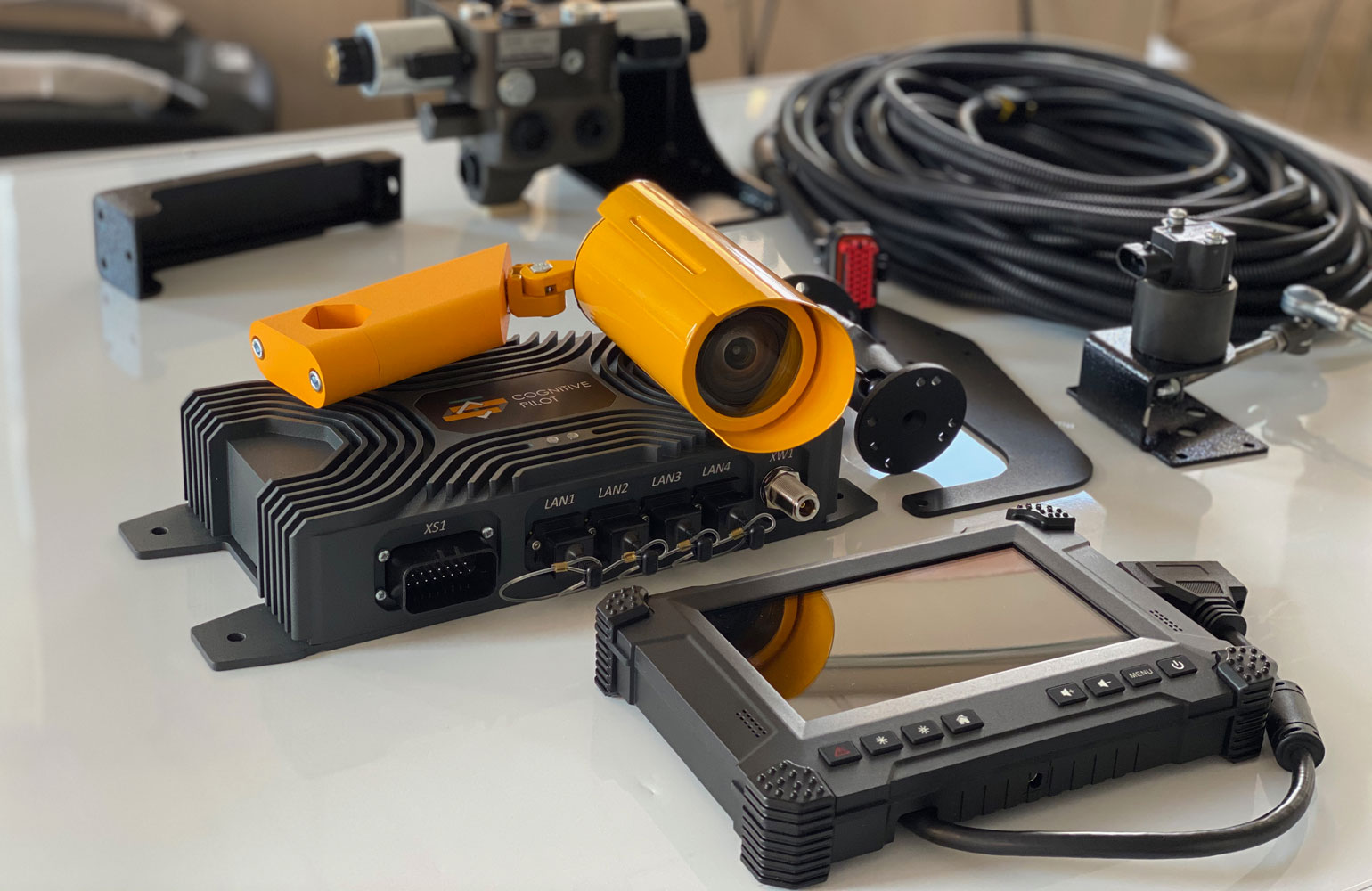New autosteering system works without GPS
When was the last time you lost a correction signal when running a tractor or combine in the field? In Russia, that’s an even bigger problem, but because of that, a new tool is being deployed — a vision-based guidance system.
That’s where Cognitive Agro Pilot comes in. “This system detects obstacles, including people, animals, metallic objects and stones along its way, without GPS navigation and RTK positioning,” says Olga Uskova, CEO, Cognitive, based in Moscow. “Cognitive Agro Pilot can operate in territories with a weak satellite signal.”
The company has developed a system that uses a high-definition camera in an armored housing that can “see” ahead. Tied to an artificial intelligence system, the systems provide precision guidance. This is more than following a row.
The company completed its first harvest year in 2020, with the systems deployed in a wide range of combines at work in Russia including John Deere, New Holland, Claas and Rostselmash (owned by the same company that owns Versatile). And in each case, according to Uskova, the systems worked as designed for wheat, corn, barley and other crops.
The system works with harvesters that have a CANBUS interface, a commonly used internal computer network on most farm equipment these days. «Now the system works on over 20 types of different combines,» she adds.

Uskova explains that if you have two combines in a field following each other, and perhaps you’re not unloading on the go (common in Russia), and one combine leaves the row to unload, the following combine will easily shift over to pick up where the other left off. No added steering involved; the machine just knows where it’s supposed to go.
The company has a fair share of videos on its website, en.cognitivepilot.com, showing the system in action. There is even video of a combine harvesting through snow. While this is an autonomous system in some ways, the operator remains in the cab. This becomes a satellite-free approach to autosteering. The machine is using information in the field to stay on track.
“An operator is still in the cabin during harvesting,” Uskova says. “However, the system allows him to focus more on parameters such as the angle of the header, setting the threshing process and grain cleaning.”
Precision by sight
Just how precise can vision-based autosteering system be? The folks at Cognitive claim 10-centimeter accuracy, or within less than 4 inches. With that precision, Uskova says a farmer can boost productivity, which farmers using autosteering in a combine understand. Yet many have yet to add autosteering to harvesters.
“The system can significantly increase productivity,” she says. “If this system is installed in 10 combines, they would work as if they were 12. That’s a 20% increase in efficiency.” She adds that with autosteering at work during harvest, there is less operator fatigue.
The system uses that high-definition camera linked to a computer unit with artificial intelligence programming. A wheel sensor is also included to control steering. With most combines now more “drive by wire,” this unit links into the steering system, and the vision-based controller keeps the machine at work. This can be controlled either through an app on an Android phone or with a ruggedized tablet.
The camera can also “see” obstacles and will bring the machine to a halt if someone is in danger. In the field, the machine may harvest around that tree in the field without added input and stay on task. And with adequate lighting, this vision system works fine for night harvesting as well.
Uskova explains that the system is an autonomous artificial intelligence driving system for farm equipment that analyzes images from that single camera to do the job.
Looking ahead
For 2021, the company is planning on demonstrating the technology in the United States. “We hope that with our system, all the fields in the United States will also become smart, and the technology will bring additional income to American farmers,” Uskova says.
Pricing for the U.S. market will be about $10,000, which includes the setup, but of course requires no add-on costs for RTK subscription services.
She adds that the company started selling product in 2020 but the pandemic slowed distribution, so most systems were sold in Russia. “In 2021, we plan to begin active international sales through our dealer network, which we are currently developing,” she says.
The whole Cognitive Pilot team wishes you a happy and prosperous New Year!

